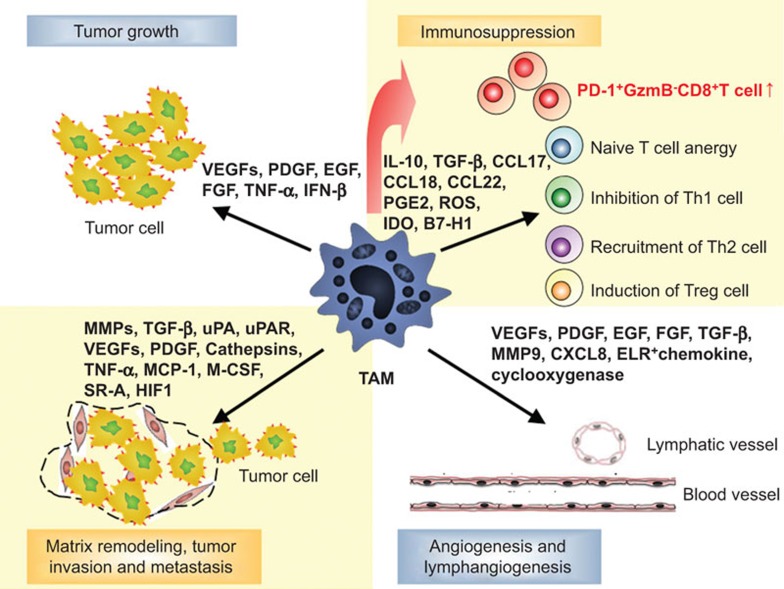Figure 2.
Multiple functions of TAMs in tumor progression. TAMs can promote tumor progression in a variety of ways. Monocyte-derived, RBPJ-dependent TAMs can induce the expansion of PD-1+GzmB−CD8+ T cells in the tumor tissue to mediate immunosuppression; TAMs can inhibit the proliferation of effector T cells or recruit more Th2 or regulatory T cells to the tumor tissue to suppress the anti-tumor immune response. TAMs can release a large number of angiogenic factors, such as VEGF and PDGF, which can promote tumor angiogenesis. In addition, TAMs can secrete numerous growth factors, MMPs, which can work jointly to promote tumor cell proliferation, invasion and metastasis. MMP, matrix metalloproteinase; PDGF, platelet-derived growth factor; TAM, tumor-associated macrophage; VEGF, vascular endothelial growth factor.

